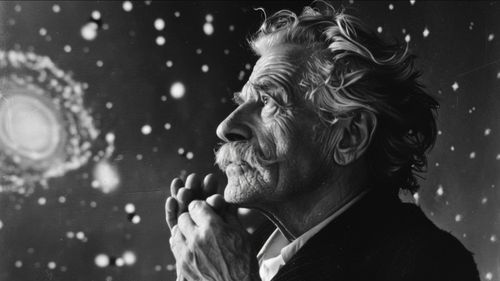Albert Schweitzer's Transformative Philosophy on the Interconnectedness of Life
Feb 20, 2024 · 2 mins read
0
Share

Albert Schweitzer turned the philosophical world on its head by asking us to consider life's "Reverence for Life" principle, making us rethink our place in the universe.
Save
Share
Born in 1875, this polymath wasn't just a philosopher; he was also a theologian, organist, writer, and medical missionary. Talk about wearing many hats!
Save
Share
Schweitzer's epiphany came while sailing on the Ogowe River, where he realized all life is connected and deserves respect and care. Yes, even that annoying mosquito!
Save
Share
His ethical philosophy is simple yet revolutionary: "I am life that wants to live, in the midst of life that wants to live." It's like the golden rule, but for all beings.
Save
Share
Schweitzer's work in Gabon, where he set up a hospital, wasn't just charity; it was a living testament to his belief in the sanctity of all life, human or otherwise.
Save
Share
He challenged the notion of "man's dominion over animals," advocating for a world where every creature's life is valued. A true pioneer of animal rights.
Save
Share
His concept of "ethical mysticism" intertwines the mystical feeling of being one with the universe with concrete actions to help all living beings. Spirituality meets activism.
Save
Share
Schweitzer's reverence for life led him to critique nuclear weapons and advocate for peace, proving his philosophy wasn't passive but a call to action.
Save
Share
Despite winning the Nobel Peace Prize in 1952, Schweitzer remained humble, pouring his prize money into his hospital in Lambaréné, Gabon.
Save
Share
Bottom line: Albert Schweitzer's legacy teaches us that every life has value, and our interconnectedness is not just a fact of existence but a guide to living ethically.
Save
Share
0